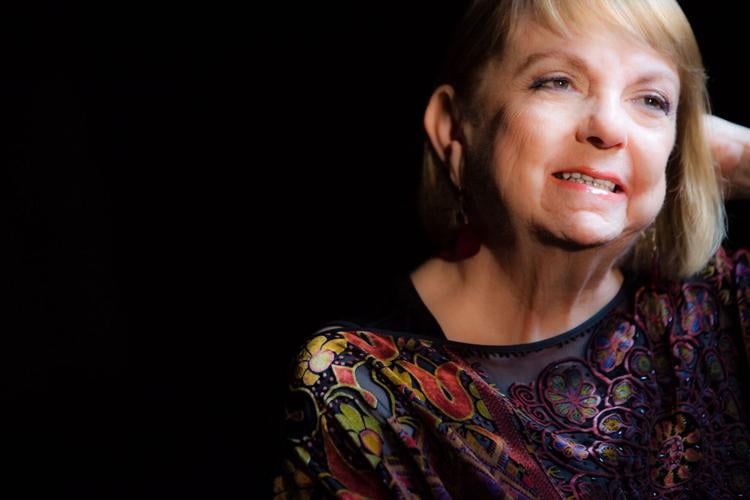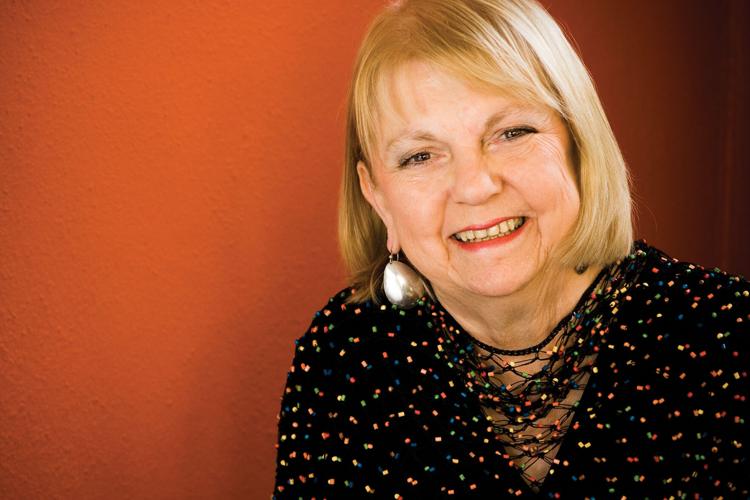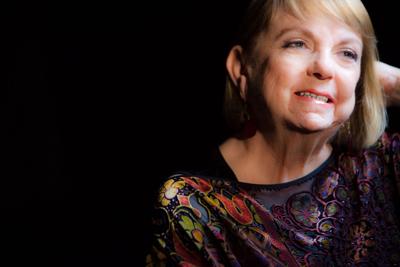Her magnificent accomplishments as a pianist and bandleader are only part of the reason Bobbe Long Adair, better known as “Beegie,” was so beloved across the Nashville musical community — especially among jazz musicians and fans. She gave immensely of herself as a performer, to colleagues who became friends and to up-and-coming musicians. Adair died at her home in Franklin on Jan. 23 at age 84.
Over a career of six-and-a-half decades, Adair collaborated with numerous jazz, pop, rock and country greats as a session musician. You hear her on such highly regarded albums as Mickey Newbury’s ’Frisco Mabel Joy and Levon Helm’s American Son, and performing on programs that featured stars singing with a house band, like The Johnny Cash Show and The Ralph Emery Show.
Adair earned more recognition as a bandleader in the 1980s, when she began playing jazz around town more frequently, and she released her first album under her own name, Escape to New York, in 1991. She played on more than 100 releases and made more than 30 records with her namesake trio, which included drummer Chris Brown and bassist and Nashville Jazz Workshop co-founder Roger Spencer. Adair took the trio to Carnegie Hall, and performed at legendary NYC jazz club Birdland in a duo with vocalist, longtime friend and manager Monica Ramey. Among an array of honors, Adair was one of about 1,600 pianists worldwide named as a Steinway Artist. She was also recognized among the Jazz Journalists Association’s Jazz Heroes in 2013. All these achievements don’t fully convey the admiration and respect she enjoyed among her peers.
“She was someone I was totally in sync with, both musically and otherwise,” Spencer tells the Scene. “We enjoyed the same musical artists, had the same tastes in food. She also was a fantastic storyteller with a wicked sense of humor.”
“It was such an inspiration to stand behind her and watch her put things together,” adds Lori Mechem, also a co-founder of the Nashville Jazz Workshop and Adair’s fellow pianist. “There weren’t many women pianists around when we came here, and there sure weren’t that many playing jazz. She was such a great pianist and made it look so easy.”
Born and raised in Cave City, Ky., Adair graduated from Western Kentucky University with a B.S. in music education. She arrived in Nashville in 1961 and immediately had a major impact on the embryonic local jazz scene. In an email, trumpeter and longtime Nashville jazz mainstay George Tidwell remembers an early meeting with Adair after he relocated here from Memphis in the early 1960s and how it aided his career.
“I sought out Beegie as soon as I was settled, went to hear her playing a solo job in Printers Alley, played a few tunes with her, and was an immediate fan for life,” says Tidwell. “We couldn’t have guessed we’d also become close friends and musical companions over the next 60 years, and that she would go on to be a top-selling jazz recording artist, loved the world over. But as my good luck would have it, we did, and she did.”
Adair teamed up with saxophonist Denis Solee to form the Adair-Solee Quartet, which later became a sextet called the Be-Bop Co-Op. She frequently participated in jam sessions around town with the likes of Boots Randolph and Hank Garland. In addition, Adair played a central role in helping establish the Nashville Jazz Workshop in the late 1990s.
“She was our first board member,” Spencer recalls. “We used to go to Blackstone and sit down over drinks and try to figure out where we were going on different matters.”

In the late ’80s, Adair hosted a music and talk show on NPR called Improvised Thoughts. Masterful pianist Marian McPartland appeared on the show, and even had Adair pinch-hit as host a couple of times on her own long-running, award-winning program Piano Jazz. The Music City jazz scene, though, was where Adair had her greatest impact. She and her late husband, fellow widely loved local musician and educator Billy Adair, were both heavily involved in training future jazz musicians.
“She was a mentor to so many of the young jazz musicians who came through the workshop — Annie Sellick, Christina Watson, Rahsaan and Roland Barber, Liz Johnson, Marcus Finnie among many others,” Mechem adds, reeling off the names of some of the Nashville jazz scene’s key players. “She cared so much about the workshop’s mission, about ensuring that the next generations of jazz musicians would learn and be encouraged.”
It’s Adair’s warmth — a love of people and a love of music that fed off each other — that’s remembered most. Tidwell recalls visiting Adair on her birthday in December, a small gathering that naturally led to an impromptu performance.
“Beeg was in great spirits, but it was late and she was a little tired, having just toasted the arrival of her 84th year,” he says. “But when Chris Brown counted a tune, and Beeg’s now slightly older fingers landed on the keys, I felt the same thrill I had felt that night in 1962. What a legacy she leaves us: tears and laughter, terrible puns and serious discussions — and oh, the music.”
A celebration of Adair’s life will be held on a date TBA. In the meantime, you can make a memorial tribute to the Nashville Jazz Workshop, Vanderbilt University’s Billy Adair Scholarship Fund, the Williamson County Animal Center or the St. Joseph’s Indian School.







